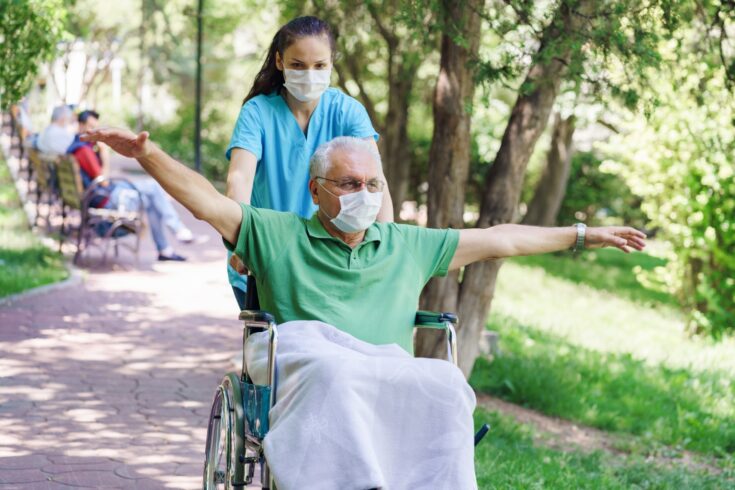People with dementia, and their carers, have been especially vulnerable to the impact of physical distancing measures needed to reduce the risk of catching COVID-19.
The measures can be frightening and reduce the accessibility of care services.
As some restrictions continue, there is a risk that people with dementia could be left behind as the rest of the population adapts.
We have funded several research projects during the pandemic to help people with dementia.
Two of the projects were nominated in the 2021 Dementia Hero Awards, which is run by the Alzheimers Society.
Inspired by people with dementia
The INCLUDE project, led by Professor Linda Clare at the University of Exeter is part of the Improving the experience of Dementia and Enhancing Active Life (IDEAL) programme.
IDEAL’s advisory group, which includes people living with dementia, encouraged the team to understand the impact of the COVID-19 pandemic and the resulting restrictions on people with dementia and their carers.
One of the project’s main objectives was to create a toolkit to support people with dementia and their carers.
The Living Well Alongside Coronavirus (LILAC) toolkit launched at an event on 27 November 2021 and includes resources to help people with dementia:
- stay safe and well
- stay connected
- keep a sense of purpose
- stay positive
- stay active.
Decision making for people with dementia
The second project nominated for the Dementia Hero Awards was EMBED-Care COVID.
The project, led by Dr Nathan Davies and Dr Nuriye Kupeli, produced a decision aid for carers of someone with dementia.
The aid was designed to help carers and family members decide how they would approach critical decisions in the pandemic.
The guide provided a pathway for decisions about:
- whether to keep the person at home or decide they would be better in hospital
- how to stay in touch with care home staff
- what support might be available at home.
Dr Nathan Davies said:
The decision aid has been used a lot by clinical teams and carers.
NHS England included it in its COVID-19 dementia care pathway, and we know it has been used in hospitals as part of discharge planning.
We hope it has been useful for carers and professionals who want the best for their loved one or patient during a very difficult and stressful time full of unknowns.
Digital art access for people with dementia
Research shows that access to art, culture and heritage can improve brain plasticity and delay onset of the symptoms of dementia.
Victoria Burnip and her husband Richard set up Unforgettable Experiences in 2017 to help older people get out to art and cultural institutions.
But when COVID-19 hit, those institutions closed and she realised that older people with dementia would be at greater risk of social isolation.
Victoria believed she could create a completely digital experience, and in August 2020, received a COVID Fast Response grant from the UKRI healthy ageing challenge.
Online participation during lockdown
Unforgettable Experiences provides personalised care and technical support to help older people take part in live, interactive artistic sessions online.
The sessions are delivered by artists in nine disciplines, including:
- photography
- creative writing
- music.
70 older people took part in the pilot programme, which ran for six weeks and was supported by:
- NHS Tees Esk and Wear Valley
- Darlington Borough Council
- Social Prescribing Network
- Alzheimer’s Society.
Meaningful impact
Victoria said:
Getting the balance right between human interaction and the technology itself has been one of our biggest challenges.
People are lonely and sometimes they just want to talk, so our Digital Activity Buddies have provided befriending support as well as technical help.
Feedback from participants shows just how much of an impact the company is having.
One woman’s father took part in songwriting sessions and after one session chose to play the keyboard without prompting.
She said the project provided him with a social outlet that would have otherwise been impossible due to lockdown and distancing restrictions.
Next steps
While the pilot began in Darlington, it has since extended its reach.
People from across the north-east of England are taking part, and Victoria has big plans for the future.
Victoria said:
We are planning to launch a paid-for service for older people and their families, using a weekly subscription model.
We’re also hoping to pursue contracts with NHS Clinical Commissioning Groups and Adult Social Care commissioners.
I’ve set us some ambitious targets and would love to be working with 1,000 people online in the next couple of years.
Last updated: 9 October 2023

